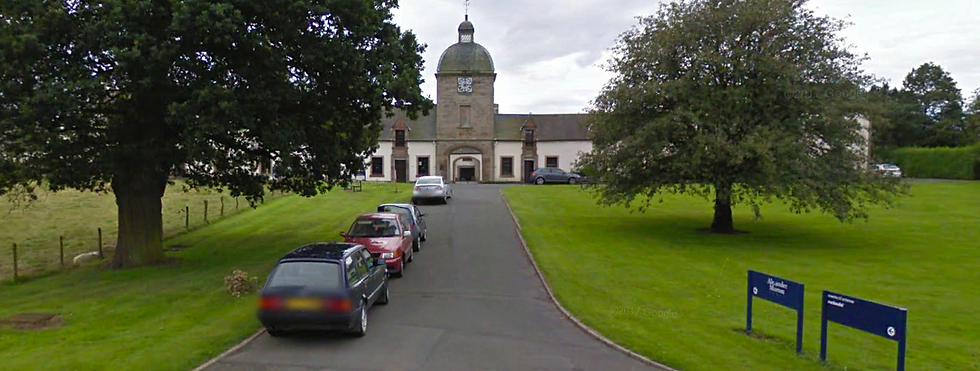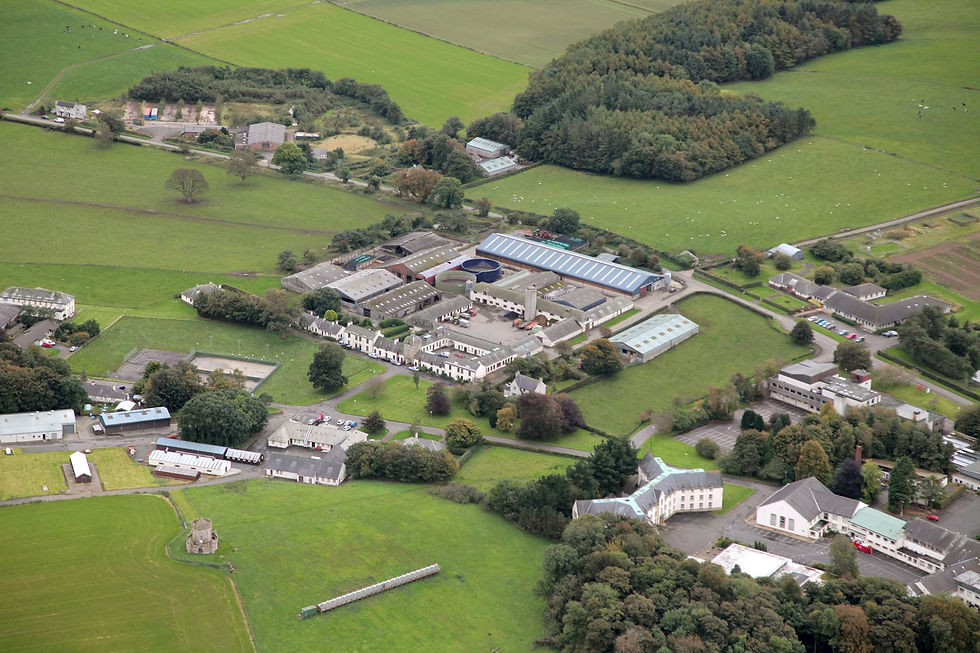
“I have always found it unrealistic for all those farmers over 55 years old, saying they would move back to their destroyed farms if given the opportunity. Do they not remember the days of close infield management from dawn to dusk in creating what they left behind. If they succeeded their energy levels would be deemed close to superhuman.” - Peter MacSporran
This week we had our first visitors in more than a year due to Covid-19 or perhaps due to my unpopularity. This honour befell Scott and Michele von Memerty, old friends from Zimbabwe, who have recently relocated to Spain. We spent many evenings during their stay reminiscing about past events and old friends. “The good old days.” Michele and Mona Moorcroft once nursed me through a very serious bout of malaria in Chimioi, Mozambique where Michele and Scott had an agri-supply business after losing their farm in Wedza.
Reflecting on my life, in returning to where I had been in part of my earlier life was generally always a disappointment. Do not get me wrong, I have many happy memories like most people of the “good old days” wherever they have been, mostly on the farm in Zimbabwe. Importantly and unfortunately many friends I have sadly lost contact with, mainly due to my poor communications or theirs. Mostly, likely a combination of both. Many have said in writing to me it was like, “writing to the dead.” No reply no matter how often you write. I have improved, especially with electronic mail. However, others are lost in the mists of time forever.
From an early age, I personally learnt that going back for a visit is fine, but to think you can return to a date in the past and pick up your life from there is very difficult to achieve. I remember the first time this was brought home to me was when I returned to Auchincruive on my surprising-to-most graduation. I decided, with an English friend, Bill Walker, who I travelled with from my then location in Norfolk, to extend our visit for more than, “the big day.” I even played rugby for college that weekend. Yes, many of the same faces from the junior courses and other faculties from our time were still there as were most of the lecturers. What had changed were the faces around them. We were a group, friends, close-knit when we left, but on return some five months later a new group had deposited itself in our old circle. In early life, with relocation and travel, unfortunately, you become transient. We were now the outsiders, the strangers in the group, not the local heroes with known reputations good or bad. As Bruce Springsteen sang, “Glory Days.” It was great catching up with all the old students who left from the courses that finished the same year though. During the weekend a sort of dawning came over me, everyone had moved on, including myself. You will always have friendships that last most of your life. In my case moving to Rhodesia then from Zimbabwe to Zambia, there was a constant changing of friends. More importantly, those left behind would find new friends, maybe new arrivals. You would find yourself the outsider on returning. You could only talk about yesteryear, not yesterday. I do not know how many times people who have returned or tried to return have said to me, “You know these people have changed.” They are not like when we knew them in the “old days.” Of course, the truth is, it is we, who have changed the most. We have had to adjust to a new environment, make new friends, live in a country with a culture completely different to ours. I believe we have changed more than those left behind. Sure, in Zimbabwe, people adjust to make a living or simply just to survive, so there is always change. As people get older interests change, friends change and importantly their financial situation may change for the better or worse. This can have a large impact on the welcome you receive. My advice is, do not blame them for changing, have a look at yourself first. On returning to childhood haunts, everything seems much smaller than I remembered. When we visited Oban as a child I thought it was a large metropolis, even though it was dwarfed by Glasgow. I was shocked to learn our local town, Penela, here in Portugal has about the same population. It is nearly double the population of Campbeltown. I consider it, Penela, just slightly bigger than a village. I cannot believe how small these Scottish towns have shrunk in size since childhood, although the population has remained the same. Yes, in childhood everything was bigger, not necessarily better.
Looking back and short visits are a different matter. Although I do look back on the good times I also look back on the bad. I find the good and bad can both raise a melancholy mood in me. Many times a pleasant melancholy but a melancholy nonetheless. I enjoy my melancholy moments. I often wonder if others do?
It’s Nearly Bass Fishing Time
Getting fitter all the time. Can do a couple of hours in the garden with only a short break. I find shopping exhausts me quickly so I have found this as an excuse to leave that to Rozanne, probably to her relief. I am sure I am fit enough to go fishing and will do so when the bass fishing season opens in July. CT scans are scheduled for the 1st of June.
College
I arrived at Auchincruive with grand ideas of being diligent and enthusiastic about my chosen subject, agriculture. It was one of the happier days of my life enrolling there. On arrival, I found I was one of the few people allocated a shared room in the men's hostel, Wilson Hall. Nearly everyone else had a single room. I am sure my roommate, later very good friend, Mike Clerk, was not so enthusiastic with his new roommate who was generally untidy, always broke, always in need of a lift and inclined to imbibe in too much beer. Wilson Hall reminded me of a school boarding house except with individual rooms instead of communal dormitories. It certainly was not salubrious with shared ablutions, a small laundry room and an inexplicably tiny TV in a small lounge which felt crowded with ten people in it to watch a sporting event or Tom and Jerry, let alone catering for some 60 students. Yes, in those days we watched Tom and Jerry and The Archies. Who can remember Sugar Sugar by The Archies? A number of us took up

watching these shows at the “Girls” hostel. I am sure we cannot call it that nowadays. Anyway, the girl's hostel was a much more attractive building being a converted 18th-century mansion known as Oswald Hall. It had two attractions. One being the girl's residence and two being where our meals were served. The food was a definite improvement on boarding school. Oswald Hall required a 1.5 km walk there and back each mealtime, keeping us reasonably fit outside the rugby season.
At Auchincruive the men outnumbered the women by as much as 10 to 1. An unhealthy balance from the men's point of view. To our relief, this was offset by a recently opened teachers training college in Ayr, Craigie, which had an enrolment much larger than Auchincruive, 90% female. Our course was geared to produce farm managers, it seems that they were expected to be men. As of the 25 plus or minus students on our course, only two were women. There were more women on courses such as dairy technology. We only had one person of colour on our course, other courses such as tropical engineering had more. Many are generously funded by overseas aid. Money for a toolbox could buy a luxury car. There were a fair number of Asians on the dairy technology course with one very slight Indian gentleman holding us all in awe by being the record holder in downing a yard of ale. Throughout my time at Auchincruive he beat all challengers near and far. A man among men. His small stature only increased our admiration for his drinking skills.

I was still playing rugby for Keil School Old Boys then so the first few weekends I set off to play for them and not the college. A mistake really. Too much expense and time-travelling only to be thrashed by a mediocre opposition. It did teach me that discipline was much more lax at college than school, as the rigours of these off-campus rugby matches inevitably meant I would arrive back in lectures after mid-morning break Monday in the clothes I left in on Saturday morning. That meant I soon learned you could miss the first lectures on Monday but also made me understand if you played for the college, your travelling time was reduced while your drinking money and time increased. I was in paradise. I am not sure if Mike thought he was in a similar place.
Disappointment
On seeking finance the first year was pure disappointment. I met so many individuals and organisations that while “talking the talk” could rarely deliver if at all. In fact most lived by talking rather than action. There were many fly by nights also in the mix. Charlatans claiming political and or financial connections with a small (to them) upfront payment would supply the land and finance to farm in many yet to be identified or outlandish places. Mostly with no access roads or utilities, especially electricity, an essential ingredient for success. Zimbabwean farmers were both naive and desperate. We were used to a simple “shake of the hand” being enough to seal a deal let alone a piece of confusing paper. Many succumbed to parting with their few remaining dollars to these unscrupulous people. One scheme that comes to mind, recalled to me this week by Scott, in our conversation was a maize-growing scheme in the Chimoio district of Mozambique along the Nhazonia River. I remember meeting a gentleman in Maputo, by the name of Groves who was promoting this for a fee. I am led to believe some 200 farmers paid a deposit to be part of the scheme which never materialised. He always wore a pinstripe suit for meetings. They should have found that alone odd if not downright suspicious, in the midst of a group of Khaki clad farmers in their short sleeves and shorts. Even if we gave him the benefit of the doubt his scheme would have never worked as maize yields are very poor there due to the high temperatures pertaining to the said area.
I thought the British would be more receptive to our plans. Not at all. At least the High Commissioner in Harare was sympathetic which could not be said for his counterpart in Lusaka whom he referred us to in looking for financial support to relocate to that country. In fact, as I walked into the High Commissioner's office in Lusaka, the first thing he said to me was, “I do not know why I am speaking to you, you're not even British.” Technically he was correct, like many Zimbabweans we had foolishly given up our British citizenship, as we were not allowed dual citizenship in Zimbabwe. As we lived in Zimbabwe we thought it right to remain citizens of that country with the knowledge that, in theory, we could reclaim our British citizenship. In practice, we found it not so easy. Anyway, that was the reception from the British in Zambia despite me still having a Scottish accent which confirmed my roots. What was of more concern was that they had obviously looked into my background before the meeting knowing exactly my status which was not common knowledge. Of interest, at that time the “spooks” from around the world were always looking to us for information. Any. Even the Australians, I couldn’t understand what would be of use to them. Of course, all the said agencies said they could not help, we were commercial. It did not matter if we could create viable enterprises employing many hundreds of people, we were commercial. Commercial was almost looked at as a swear word rather than the description of a viable enterprise. The same attitude if not worse from NGOs. Although the commercial aspect was used as an excuse at the time with experience I now also realise accountability was one unknown factor to us at the time. Grants, free handouts were one-offs. Within a short time of being out the door, to be forgotten. Conceivably, to a scheme that repeatedly had received similar funding. Soft loans to enterprises required annual audits and reports. Extra work with the risk and possibility of embarrassing discovery in the audit. Best not to touch. In the end, it was the private sector that took my scheme on board. Only after thousands of kilometres driven and flown, hundreds of doors knocked on multiple rejections along with many meetings and meals with both politicos and shysters. One no better than the other with their smiles and false promises.

Disclaimer: Copyright Peter McSporran. The content in this blog represents my personal views and does not reflect corporate entities.
Opmerkingen